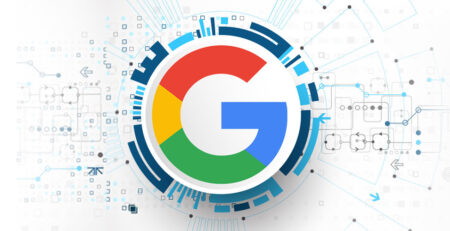Understanding Consumer Behavior in the Digital Age
The Evolution of Consumer Behavior
The Rise of Digital Influence
The focus keyword, “Understanding Consumer Behavior in the Digital Age,” encapsulates the significant shift in how consumers interact with brands. The internet has empowered consumers with unprecedented access to information, allowing them to make more informed decisions. Reviews, social media, and online forums have become integral in shaping consumer opinions and behaviors. Consumers now rely heavily on digital platforms for researching products, reading reviews, and making purchases. This digital influence has changed traditional consumer behavior patterns, necessitating businesses to adapt their strategies accordingly.
The Power of Personalization
Personalization has emerged as a powerful tool in understanding and influencing consumer behavior. In the digital age, consumers expect personalized experiences tailored to their preferences and behaviors. Businesses leveraging data analytics can create highly personalized marketing campaigns, enhancing customer engagement and loyalty. Personalized recommendations, targeted advertising, and customized content can significantly impact consumer decisions. By understanding individual preferences, businesses can deliver more relevant and compelling messages, leading to higher conversion rates. Personalization fosters a deeper connection between brands and consumers, building trust and loyalty over time.
Key Factors Influencing Digital Consumer Behavior
Information Overload
Consumers today are bombarded with information from multiple channels. This overload can lead to decision fatigue, where the sheer volume of information makes it challenging for consumers to make choices. Businesses must strive to present clear, concise, and relevant information to stand out in this crowded digital landscape. Simplifying the decision-making process by offering streamlined options and easy-to-digest content can help alleviate the burden of information overload. By curating content that is directly relevant to their audience, businesses can cut through the noise and capture attention effectively.
The Role of Social Proof
Social proof, including reviews, testimonials, and social media endorsements, significantly impacts consumer behavior. Positive reviews and endorsements from trusted sources can sway consumer decisions, while negative feedback can deter potential customers. Businesses must actively manage their online reputation to build trust and credibility. Encouraging satisfied customers to share their positive experiences and addressing negative feedback promptly and professionally can enhance a brand’s image. Social proof provides reassurance to potential customers, validating their decision to choose a particular product or service.
Strategies for Businesses
Leveraging Data Analytics
Understanding consumer behavior in the digital age requires harnessing the power of data analytics. By analyzing consumer data, businesses can gain insights into customer preferences, buying patterns, and behaviors. This information is crucial for developing targeted marketing strategies and improving customer experiences. Data analytics allows businesses to track and measure the effectiveness of their marketing efforts, enabling them to make data-driven decisions. By continuously analyzing and interpreting data, businesses can stay ahead of trends and adapt their strategies to meet evolving consumer demands.
Enhancing User Experience
A seamless and enjoyable user experience is critical in influencing consumer behavior. Businesses should focus on optimizing their websites and digital platforms to ensure easy navigation, fast load times, and mobile compatibility. A positive user experience can lead to higher conversion rates and increased customer satisfaction. User-friendly interfaces, intuitive design, and responsive customer support are essential elements of a great user experience. Investing in user experience improvements can result in long-term customer loyalty and positive word-of-mouth recommendations.
Engaging Content Marketing
Content marketing remains a vital strategy for engaging and influencing consumers. High-quality, relevant content can attract and retain customers, driving them towards making informed purchasing decisions. Businesses should invest in creating valuable content that addresses consumer needs and interests. Blog posts, videos, infographics, and social media content can all play a role in a comprehensive content marketing strategy. By providing valuable information and solutions to consumer problems, businesses can position themselves as industry leaders and build trust with their audience.
The Future of Consumer Behavior in the Digital Age
Emerging Technologies
Emerging technologies such as artificial intelligence (AI), machine learning, and virtual reality (VR) are set to further transform consumer behavior. These technologies can provide deeper insights into consumer preferences and create more immersive and personalized experiences. Businesses must stay abreast of these advancements to remain competitive. AI-powered chatbots, personalized shopping assistants, and virtual try-on experiences are just a few examples of how technology is enhancing the consumer journey. By embracing these innovations, businesses can offer cutting-edge experiences that meet the evolving expectations of consumers.
The Importance of Ethical Marketing
As consumers become more conscious of privacy and data security, ethical marketing practices will become increasingly important. Businesses must prioritize transparency and honesty in their marketing efforts, ensuring they respect consumer privacy and build trust through ethical practices. Being transparent about data collection and usage, providing opt-out options, and safeguarding customer information are critical components of ethical marketing. By demonstrating a commitment to ethical practices, businesses can differentiate themselves in a competitive market and foster long-term customer loyalty.
Thriving in the Digital Age
Understanding consumer behavior in the digital age is both a challenge and an opportunity for businesses. By leveraging data analytics, personalizing experiences, and maintaining ethical marketing practices, businesses can better connect with their audiences and drive growth. Staying attuned to the evolving digital landscape will enable businesses to adapt and thrive in an ever-changing market. In this era of digital transformation, businesses that invest in understanding and influencing consumer behavior will be well-positioned to succeed. The key lies in embracing the power of technology, personalization, and ethical practices to create meaningful and lasting relationships with consumers. By continuously evolving and adapting to consumer needs, businesses can achieve sustained success in the digital age.
The digital age offers unprecedented opportunities for businesses to connect with consumers on a deeper level. By understanding the factors that influence consumer behavior and implementing effective strategies, businesses can create positive and impactful experiences for their customers. Embracing data-driven insights, personalizing interactions, and maintaining ethical standards will set businesses apart in a competitive landscape. As technology continues to evolve, staying ahead of trends and embracing innovation will be crucial for long-term success. Ultimately, businesses that prioritize understanding and meeting consumer needs will thrive in the digital age, building lasting relationships and driving sustainable growth.










